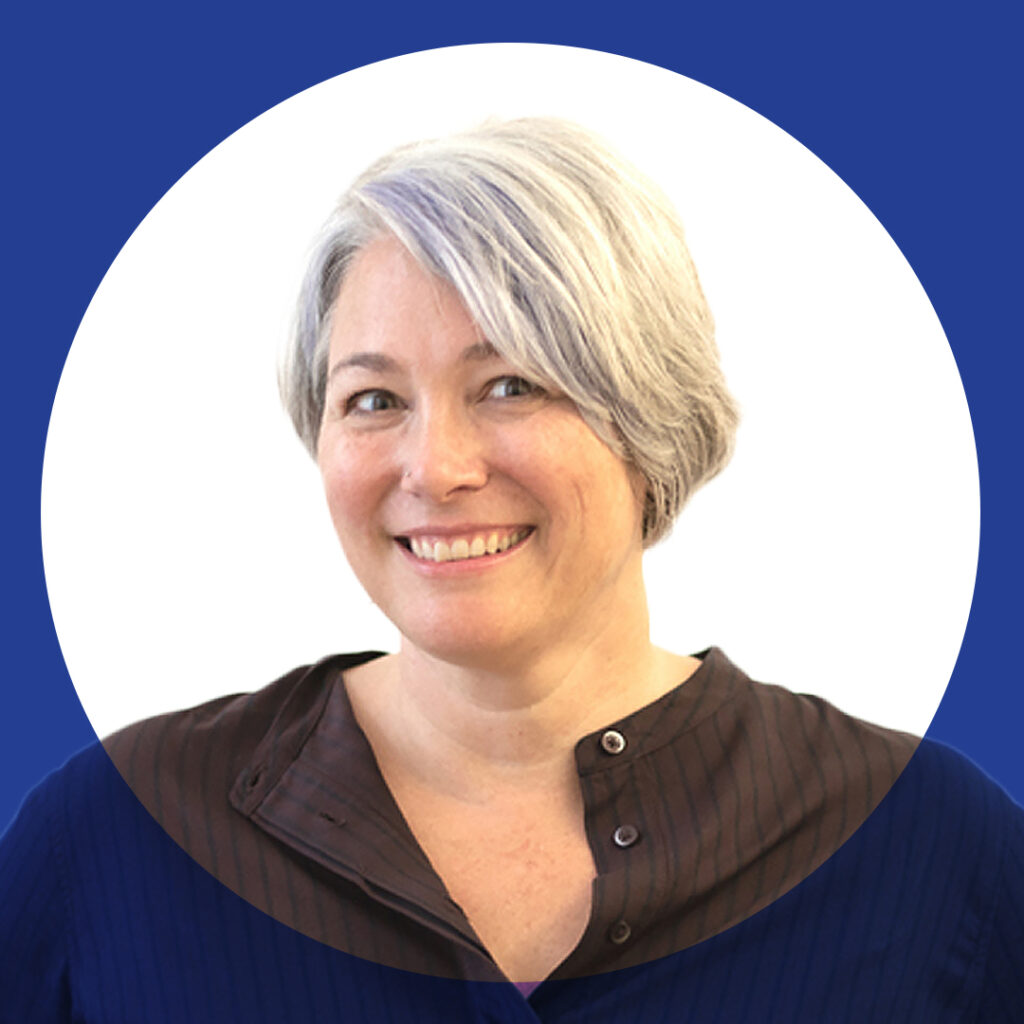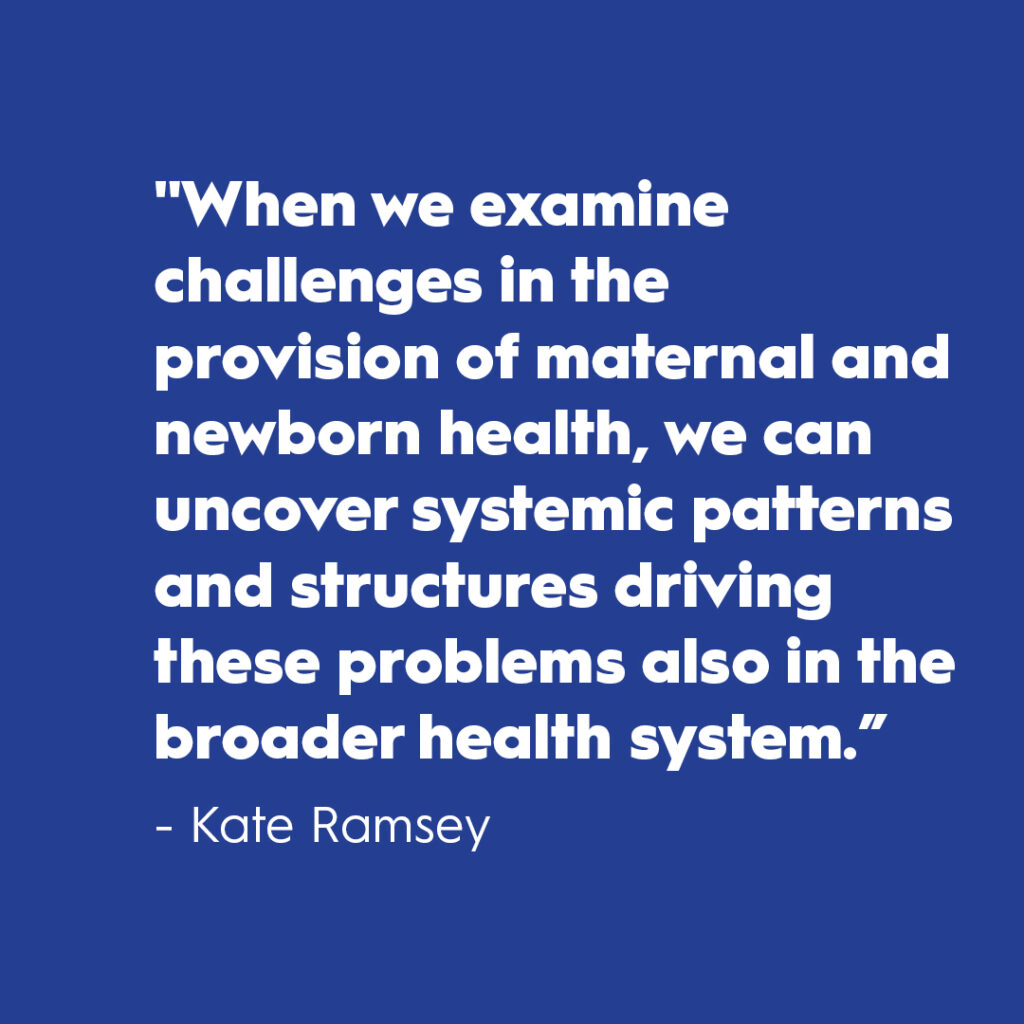Scope Q&A: Kate Ramsey
Meet Kate Ramsey, our Senior Global Health Advisor who is an integral part of Scope’s project planning and design. Kate is based in New York, and she has been working in the global health space for the past 20 years, planning, leading, and managing health projects across continents and sectors. Kate specialises in maternal and newborn health and health systems and is currently finalising her PhD degree in public health at Columbia University. At Scope, she leads our maternal health-related Healthy Women, Healthy Families and Re-Visioning Emergency Obstetric and Newborn Care Indicators projects. We talked with Kate about her wish to bring joy into women’s journey to motherhood.
What made you decide to focus your career on maternal and newborn health?
It all started when I was a Peace Corps volunteer in Jordan. My friends confided in me about their lives and how reproductive health issues were affecting them. I pursued a master’s degree in public health at Columbia University, focusing on maternal and newborn health. Pregnancy and delivery are moments that can bring such joy to women and their families, but they can also be marked by fear, stress, and tremendous loss. Whether it goes one way or the other is due to a complexity of factors, from social conditions to the availability of clinical interventions. I wanted to contribute to increasing the likelihood that these moments are filled with joy rather than heartbreak.
Later in my career, I have learnt that maternal and newborn health outcomes say a lot about how a health system functions because it requires multiple levels and types of care to work seamlessly together. When we examine challenges in the provision of maternal and newborn health, we can uncover systemic patterns and structures driving these problems also in the broader health system. We can then use this understanding to find leverage points to change the system, not only for maternal and newborn health but for other areas of health as well.
What sets Scope apart from other organisations where you’ve worked?
Scope is a special place where people with different skills and backgrounds come together. It’s a space where it’s okay to work at boundaries, combining various disciplines with lived experience to forge new innovations. This creates a unique opportunity to bring together issues of people, systems, and scale. We can connect the individual’s experience with how the systems operate to support and create more joy in that experience. For example, we can’t expect a dysfunctional system that doesn’t have respect as an internal working ethos to create good experiences for its clients – it’s not designed to produce that output.
Our people-centric approach, which focuses on empathy and human behaviours, can help understand the people working in a health system and how to improve their work environment. This isn’t a simple task, but Scope isn’t afraid to work in these risky spaces, and that means an opportunity for great innovation. It’s also important that Scope supports and facilitates the design of programmes with the people who are most affected. We need to be designing programmes in communities rather than in conference rooms, recognising and helping them spark inherent creativity and implicit knowledge.
You are working on the Healthy Women, Healthy Families project in Bangladesh. Why is providing group perinatal care so important for expectant mothers?
We believe there are important advantages that group perinatal care, which covers the period before and after delivery, brings over traditional approaches to antenatal care, but the model needs to be adjusted to women’s realities, expectations, and aspirations in different contexts to be fully effective. Several characteristics make group care more responsive to women’s needs. One key factor is that women all over the world share a sense of isolation during their pregnancy. The group model enables them to create connections with other women, sharing their experiences, hopes, and concerns. These relationships can continue well beyond the group sessions and past the pregnancy, helping to reduce stress and introduce joy into women’s perinatal experience.
We have been working with Management Sciences for Health since 2016 to understand how the group antenatal care model can be adapted to different contexts. In Bangladesh, we are excited to take this model, which we’ve previously only implemented in rural areas, to an urban setting. We’re also looking at how we can better include men and other family members in perinatal care since they typically hold power over women’s choices and actions. As we’re now extending our model to the post-pregnancy period, it also allows for more information to be shared and additional counselling to occur, equipping women with knowledge and strategies to ensure a healthy pregnancy, delivery, and newborn.
Back to news
